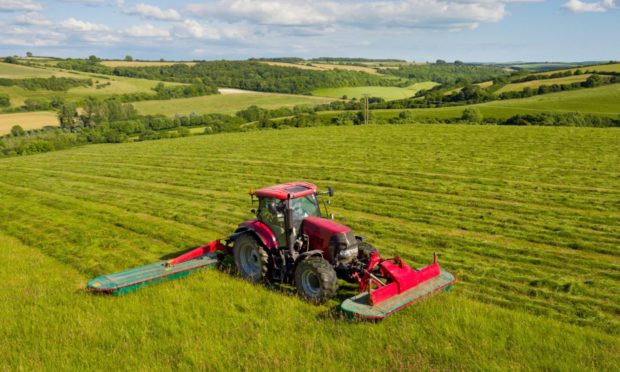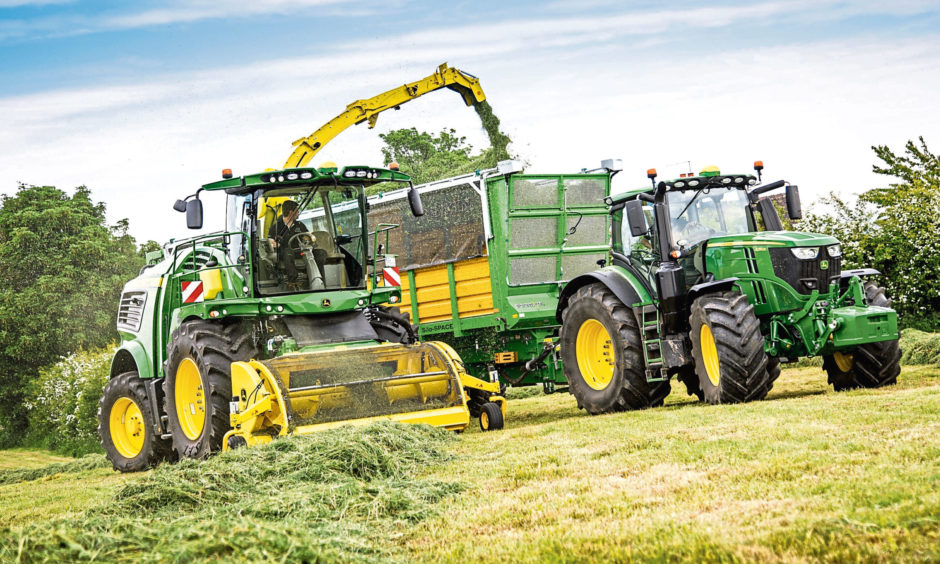Farmers and crofters are being urged to ensure their machinery is safe and in good working order ahead of this year’s silage season.
Rural insurer NFU Mutual is calling on all farmers to “think safety first” as many have either started, or are preparing to start, first-cut silage.
“Silage making is one of the busiest times of the year for livestock farmers and contractors, and puts machinery and workers under a lot of strain,” said Andy Manson, managing director of NFU Mutual’s risk management services division.
“Tractors and trailers which may not have been out for months suddenly get used to the max, and long hours can increase the risk of accidents when drivers are tired.”
He said NFU Mutual had produced a series of safety tips for silage season.
This includes a plea to check moving parts of mowers, tedders, forage harvesters and balers – including guarding such as a PTO shafts – for wear or damage, and to carry out all recommended maintenance before making a start on grass cutting.
Farmers and contractors are also reminded to switch off engines and ensure parts have stopped moving before clearing blockages or carrying out maintenance, and to remove the keys to prevent any machines accidentally starting up.
The safety advice also includes taking time to ensure trailers are road legal with fully maintained and working brakes, lights, indicators and flashing beacons.
Mr Manson encouraged farmers to familiarise themselves with, and follow the advice from, the Tilly your Trailer initiative – this has an 18-point inspection procedure and certificate aimed at ensuring trailers are properly maintained, safe for road use, and comply with safety legislation.
“This year, with many more people out and about in the countryside, it’s also important to make all team members aware of lanes and commonly used routes through fields used by walkers and cyclists so they can take care to avoid the risk of a collision,” added Mr Manson.
He also advised farmers to keep mobile phones on them so they can contact someone if there is an emergency, to ensure all tractor and machinery drivers know where overhead power lines are, and to keep children away from working areas.

